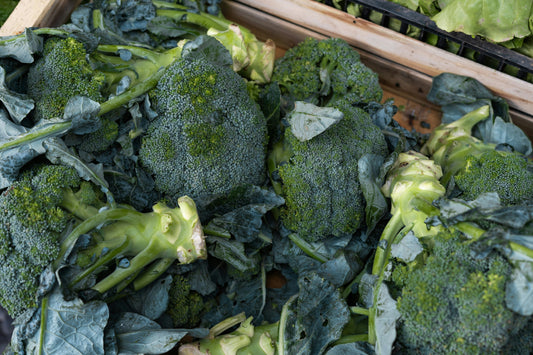Our skin is our largest organ, and is a barometer which can be used to monitor internal health. Acne, facial redness, eczema, psoriasis, dry skin, and rosacea are all skin conditions which can have the same root cause; poor gut health. The health of your gut is fundamental to glowing skin! The gut includes everything from the mouth all the way through to the anus – it is responsible for absorbing nutrients, housing both helpful and harmful bacteria and excreting waste. Making improvements to the digestive system has been scientifically shown to improve skin health, immune function, mood, and energy levels.
WE ARE WHAT WE ABSORB
The old adage “you are what you eat” is not necessarily true, it is more correct to say that “you are what you absorb.” The primary role of the gut is to absorb the nutrients from the food that the body needs for growth, repair, and normal functioning. There are many things that inhibit proper absorption of nutrients, and when the body doesn’t receive enough nutrients it begins to prioritise which organs get the nutrients which are available. Our skin, hair, and nails are usually the first places in which we notice changes, and this is because when nutrients are in short supply the body drives nutrients towards essential organs like the heart, brain and liver.
The first step in making sure that the body is getting all of the nutrients it needs is by supplying it with a diet rich in variety and coloured plant foods. Fruits and vegetables are the richest sources of nutrients and should make up the foundation of your diet. Other foods to include are whole grains, lentils, beans, nuts, seeds, lean meats and fish, and whole food fats like organic butter, avocado, and unrefined plant oils.
There are many things you can do to increase your ability to absorb as much goodness as possible from your food, and the easiest of these is to chew your food. I know it sounds silly, but remember that the first place digestion starts is in the mouth and this is the only chance you have to mechanically break down your food. Once food has been swallowed the body can only use digestive enzymes to further break food down, large pieces of food take much longer to break down than small well chewed pieces. We want food to be absorbed as quickly as possible to ensure that it doesn’t sit in the gut and ferment, which can then cause unpleasant gas and bloating.
Another important part of the early digestion process is stomach acid and digestive enzymes – both of these substances help to break food down into small molecules that the body can then absorb. A common digestive problem is that people don’t make enough stomach acid, symptoms of low stomach acid production include; reflux, bloating, gas, and facial redness. A simple remedy for low stomach acid production is to have the juice of half a lemon in a small amount of water (50-75mls) before meals. This kick starts your stomach into making enough acid for optimal digestion. It is also important to limit drinks around meals as this dilutes stomach acid and can impair digestion.
A lack of digestive enzymes can reduce the amount of fat and protein that is absorbed, consequently leaving the skin dry and dull, and can be the cause behind eczema and psoriasis. Working with a nutritionist or naturopath can be a great way to get your digestive enzymes working efficiently and resolve dry skin problems.
THE GOOD BUGS
Gut bacteria have a massive influence on the health of the body and especially the health of the skin. Each person has about 1kg of bacteria living inside their gut, and ideally, we want to have 85% good bacteria to about 15% bad bacteria. This is an ideal ratio to keep the gut healthy and functioning optimally – when this ratio changes is when problems can start to arise.
Gut bacteria are responsible for the digestion of some types of carbohydrates that the human body is not equipped to digest itself. The bacteria metabolise the carbohydrates into short chain fatty acids which the body can then use for energy. Gut bacteria also produces some B vitamins and most of the vitamin K needed by the body.
A lack of helpful gut bacteria can lead to an overgrowth of bad bacteria, and when this happens, the gut walls start to become damaged. The damage to the gut wall is a condition known as leaky-gut syndrome. The gut wall is made up of lots of cells, each of these cells are held together by a ‘tight-junction.’ Normally these tight-junctions are impermeable and do not let substances through, however harmful bacteria can damage these junctions and cause gaps to form. Once the tight-junctions have been opened up, you have what is known as leaky-gut syndrome. Leaky-gut syndrome is when the contents of the gut are able to pass through the cell wall and into the bloodstream. Molecules of food, bacteria and parasites are able to pass into the bloodstream where they can trigger a host of problems throughout other parts of the body. Many autoimmune conditions as well as skin conditions are triggered by leaky gut syndrome. While harmful gut bacteria is usually the leading cause of leaky gut syndrome, alcohol, gluten, dairy, food additives, and pesticides can contribute to damaging the gut wall too.
When harmful substances make their way into the bloodstream the body looks for the quickest way to remove them, and through the skin is one such way. The body triggers an immune reaction in response to these substances, which can cause redness and swelling, contributing to acne and facial redness.
Taking a high quality probiotic and eating probiotic rich foods is the best way to improve your gut bacteria ratio. Foods like kiefer, sauerkraut, natural yoghurt, and kombucha can all help regain a healthy gut bacteria balance. While it is important to provide the gut with the bacteria is needs to thrive, it is equally important to remove the substances that are causing the damage or feeding the bad bacteria. Substances like gluten, alcohol, refined sugars and processed foods all contribute to gut damage and inflammation in the body and should be limited or avoided if possible.
KEEP THINGS MOVING
The main purpose of the lower gut is to excrete substances that the body doesn’t need anymore. Ideally you should be using your bowels at least once per day, this ensures that waste products do not sit in the body too long. If waste is left in the lower bowel, the body can reabsorb some of the substances that it is trying to get rid of, reabsorbed substances can then be excreted through the skin, which as we know can cause skin problems.
Fibre and fluids are the two things needed to keep waste moving out of the body. There are two types of fibre; soluble and insoluble fibre. Soluble fibre is found in foods like; oats, rye, barley, flax meal, chia seeds, and some fruits and vegetables. This type of fibre helps us to feel satisfied after eating, and has the special ability to bind to substances and slow their absorption (sugars and fats), or can bind to substances helping them to be excreted (hormones and cholesterol). The ability to help with the removal of hormones is an important property of soluble fibre, especially in regards to skin, as excess levels of circulating sex hormones can contribute to skin issues like melasma and breakouts.
Insoluble fibre is found in all fruit and vegetables, whole grains, and nuts and seeds. Most natural plant foods contain some insoluble fibre. You can imagine it traveling through the digestive system like a broom. It sweeps the sides of the intestines, collecting waste matter and moving it out of the body. Not only does insoluble fibre act as an internal cleaner, but it also feeds the bacteria living in the large intestine. Some of the gut bacteria present in the body have the digestive enzymes needed to breakdown this form of fibre as the human body cannot breakdown insoluble fibre by itself. The bacteria break the fibre down and release short-chain fatty acids and some vitamins, which the body can then absorb and use.
A diet high in fibre is important for; the removal of waste and unneeded hormones and cholesterol, to feed our helpful gut bugs and to control blood sugar levels, all of which can have a direct effect on the health of the skin if not properly managed.
HERE ARE MY TOP TIPS TO CARE FOR YOUR DIGESTIVE HEALTH FOR GLOWING SKIN:
- Increase stomach acid production by drinking lemon juice and in a small amount of water before meals.
- Chew your food!
- Consume probiotic containing foods such as; sauerkraut, kimchi, kombucha, fermented dairy, miso soup, or take a good quality probiotic supplement.
- Avoid foods and substances that can impair digestion or damage the gut lining. This includes processed foods, refined sugars, alcohol and gluten.
- Improve waste removal and feed the good gut bacteria by eating a high fibre diet. Including lots of fresh fruits and vegetables, legumes, beans, nuts and seeds will ensure adequate fibre intake.
- And not exactly digestion related, but of course feeding the skin with nutrient rich natural skincare to complete your holistic beauty routine for glowing skin.
For more information about Tailor Skincare, visit: www.tailorskincare.co.nz




